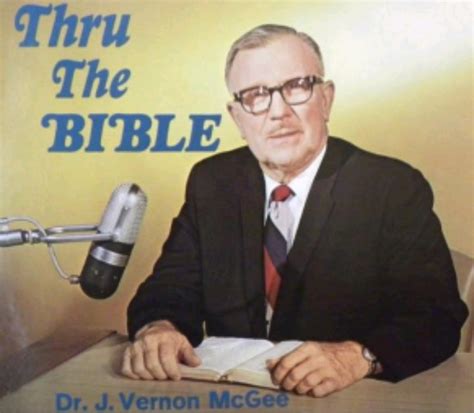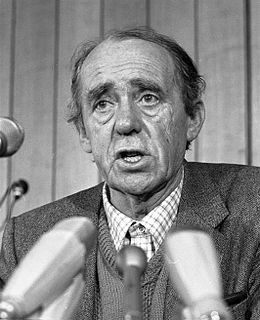A Quote by Elizabeth I
Answer on being asked her opinion of Christ's presence in the Sacrament. 'Twas God the word that spake it, He took the Bread and brake it; And what the word did make it That I believe, and take it.
Related Quotes
[Christ's] mission and work it is to help against sin and death, to justify and bring life. He has placed his help in baptism and the Sacrament [i.e., communion/Eucharist/Lord's supper], and incorporated it in the Word and preaching. To our eyes Baptism [capitalized in original] appears to be nothing more than ordinary water, and the Sacrament of Christ's body and blood simple bread and wine, like other bread and wine, and the sermon, hot air from a man's mouth. But we must not trust what our eyes see.
In my opinion, the greatest sin in the church of Jesus Christ in this generation is ignorance of the Word of God. Many times I have heard a church officer say, "Well I don't know much about the Bible, but..." and then he gives his opinion, which often actually contradicts the Word of God! Why doesn't he know much about the Bible? These things were written aforetime for our learning. God wants you to know His Word.
What if all it took to bring us to our knees and to ignite our affections was the Word opened and the presence of God? What if that was enough for us? What if it didn't take a great band to evoke that kind of response from us in worship? What if His presence - His Word opened - what if it was enough?
A writer who writes, ''I am alone''... can be considered rather comical. It is comical for a man to recognize his solitude by addressing a reader and by using methods that prevent the individual from being alone. The word alone is just as general as the word bread. To pronounce it is to summon to oneself the presence of everything the word excludes.
I [i.e., God] have given you baptism as a gift for the forgiveness of sins, and preach to you unceasingly by word of mouth concerning this treasure, sealing it with the Sacrament of my body and blood, so that you need never doubt. True, it seems little and insignificant that by the washing of water, the Word, and the Sacrament this should all be effected. But don't let your eyes deceive you.
Behind every word a whole world is hidden that must be imagined. Actually, every word has a great burden of memories, not only just of one person but of all mankind. Take a word such as bread, or war; take a word such as chair, or bed or Heaven. Behind every word is a whole world. I'm afraid that most people use words as something to throw away without sensing the burden that lies in a word.
Looking back over the years, I realize the Bible isn't magic, but it is corrective; it isn't an answer book, it is a living book; it isn't a fix-it book, it is relationship book. When I confront God's word, I am confronted; when I read God's word, it reads me; when I seek God's presence, He seeks me.
In short, I will preach it [the Word], teach it, write it, but I will constrain no man by force, for faith must come freely without compulsion. Take myself as an example. I opposed indulgences and all the papists, but never with force. I simply taught, preached, and wrote God's Word; otherwise I did nothing. And while I slept, or drank Wittenberg beer with my friends Philip and Amsdorf, the Word so greatly weakened the papacy that no prince or emperor ever inflicted such losses upon it. I did nothing; the Word did everything.
When one person is struck by the Word, he speaks it to others. God has willed that we should seek and find His living Word in the witness of a brother, in the mouth of man. Therefore, the Christian needs another Christian who speaks God’s Word to him. The Christ in his own heart is weaker than the Christ in the word of his brother; his own heart is uncertain, his brother’s is sure.



































